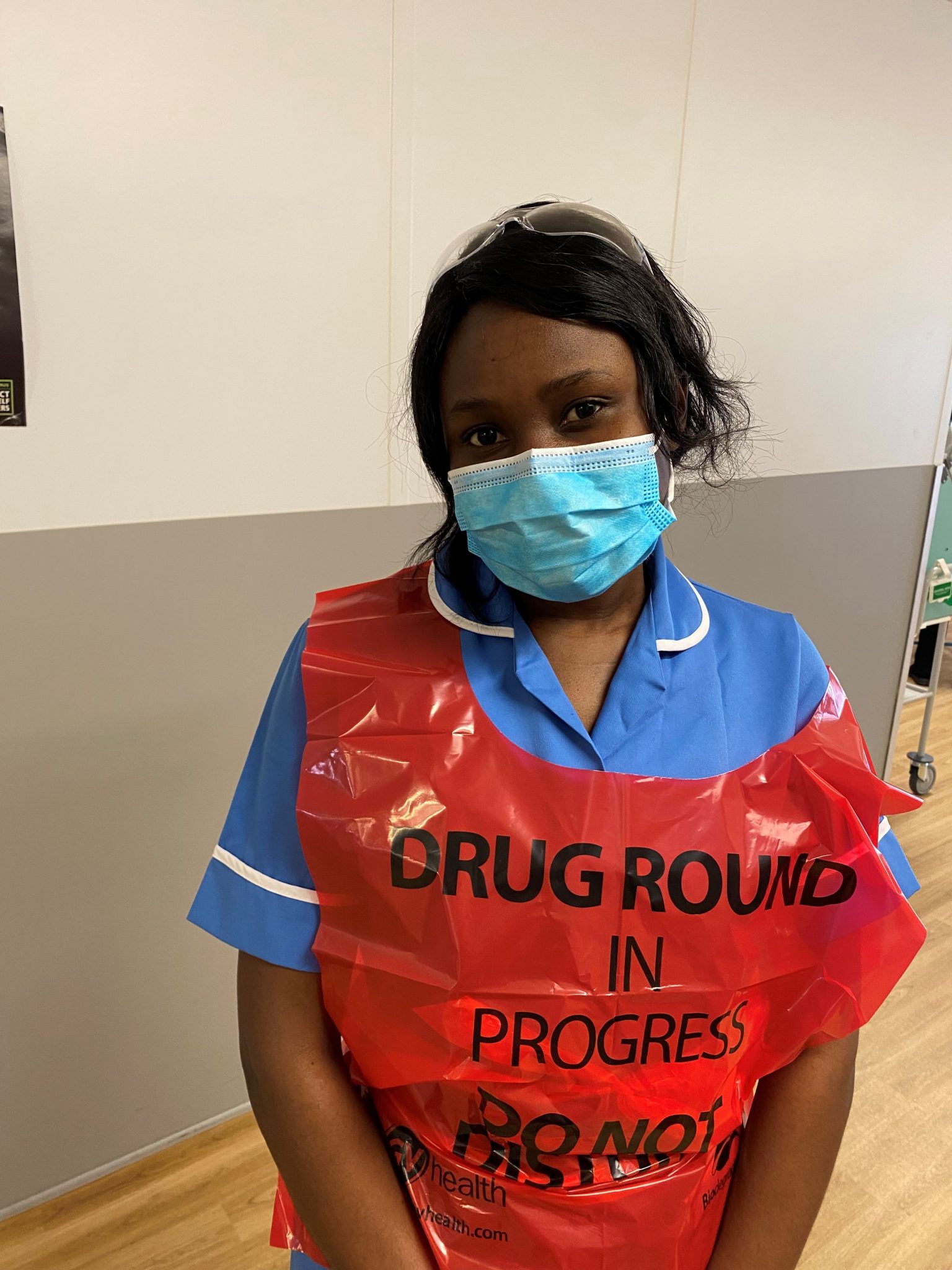Overseas staff at two Black Country NHS trusts are being recognised for their dedication and commitment to their patients today – the second ever Overseas NHS Workers Day.
Walsall Healthcare NHS Trust and The Royal Wolverhampton NHS Trust are proud to support this special focus which celebrates the extraordinary contributions made by their international staff.
Both Trusts have a long history of supporting overseas staff and by the end of 2022, more than 1,100 international nurses will have been recruited across the Black Country and West Birmingham.
Gifty Konadu arrived in the UK in September 2021, from Ghana, and is currently working on Ward 29 at Walsall’s Manor Hospital.
She said: ““I came to the UK in September and so far it has been amazing.
“Coming to a new country has been daunting but I have had a lot of support and my mentors have been great.
“The biggest hurdle has been learning about all the new equipment – equipment we had only read about in text books prior to coming here.
“It is a whole new way of life but I am enjoying the new challenge.”
Her colleague Nathaniel Frimpong also came to the UK from Ghana. He said getting to grips with a new healthcare system has been a challenge, with different equipment to use.
He said: “I wanted a different experience and to learn new things so decided to move here. It hasn’t been easy but the team are very supportive.”
Another great example of a member of staff using her experience and knowledge from her home country to benefit others is midwife Julia Bull.
Julia came over from Poland in 2007 after enrolling on a BCS in health studies at the University of Wolverhampton.
She went on to work as a Healthcare Assistant at New Cross Hospital, before starting a midwifery course.
Now a fully qualified midwife, one of Julia’s passions is to help women from eastern Europe living in the UK have access to great midwifery care.
She said: “I have always enjoyed working at RWT and have had great support.
“Since working as a midwife I wanted to help women from eastern Europe have access to the same high quality healthcare. I am planning to introduce classes and also I regularly speak to the communities to see if there are any issues I can help address.
“For example with the COVID-19 vaccine, I wrote an article which was published in a Polish newspaper about the importance of the jab.
“Speaking in Polish really helps women feel more comfortable and also as we come from the same country I have more things in common we can talk about.
“I just want to make sure everyone gets the same amazing care, no matter what their background is.”
Julia also had two of her student assignments published in a midwifery journal. ‘Childbearing – when complex may be the norm for some, and normal may be complex for others’ was published in MIDIRS Midwifery Digest in March 2021 while ‘Immigration and health inequalities – how to improve the provision of maternity services among non-UK born mothers from the European Union’ was published in June.
Both of the articles were originally written by Julia for assignments on her university midwifery course. They were of such a high quality, her lecturers suggested that she explored the prospect of getting them published.
Julia added: “It was a privilege and honour to have my articles published. I just hope it helps others around the country provide the best care they can.”
Ahmed Mohamed, senior clinical fellow at RWT, came to work in the UK from Egypt and said it was a ‘difficult decision’.
He is one of hundreds of international doctors that have joined the Clinical Fellowship Programme.
He added: “It was never an easy decision to leave everything behind in Egypt and start a new challenge here. I joined RWT in 2019 and the clinical fellowship programme played the major role in the bridging the cultural gap.
“In three years I have completed my membership exams, completed my two advanced training modules, and learnt a lot in management and leadership. I wouldn’t have been able to this without the support from the whole department. This investment in doctors made it a very attractive spot for trainees and fellows from all over the Midlands.”

